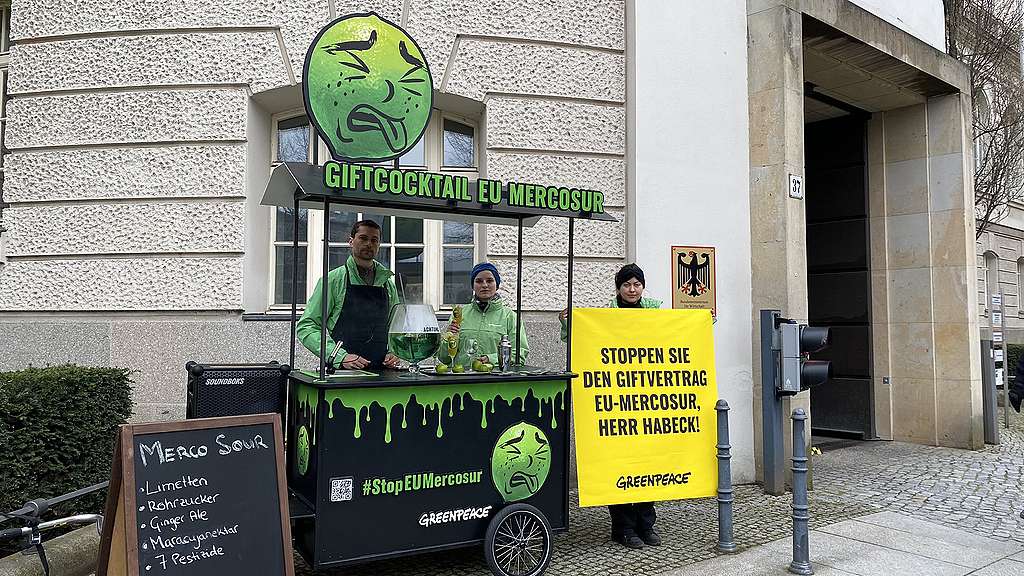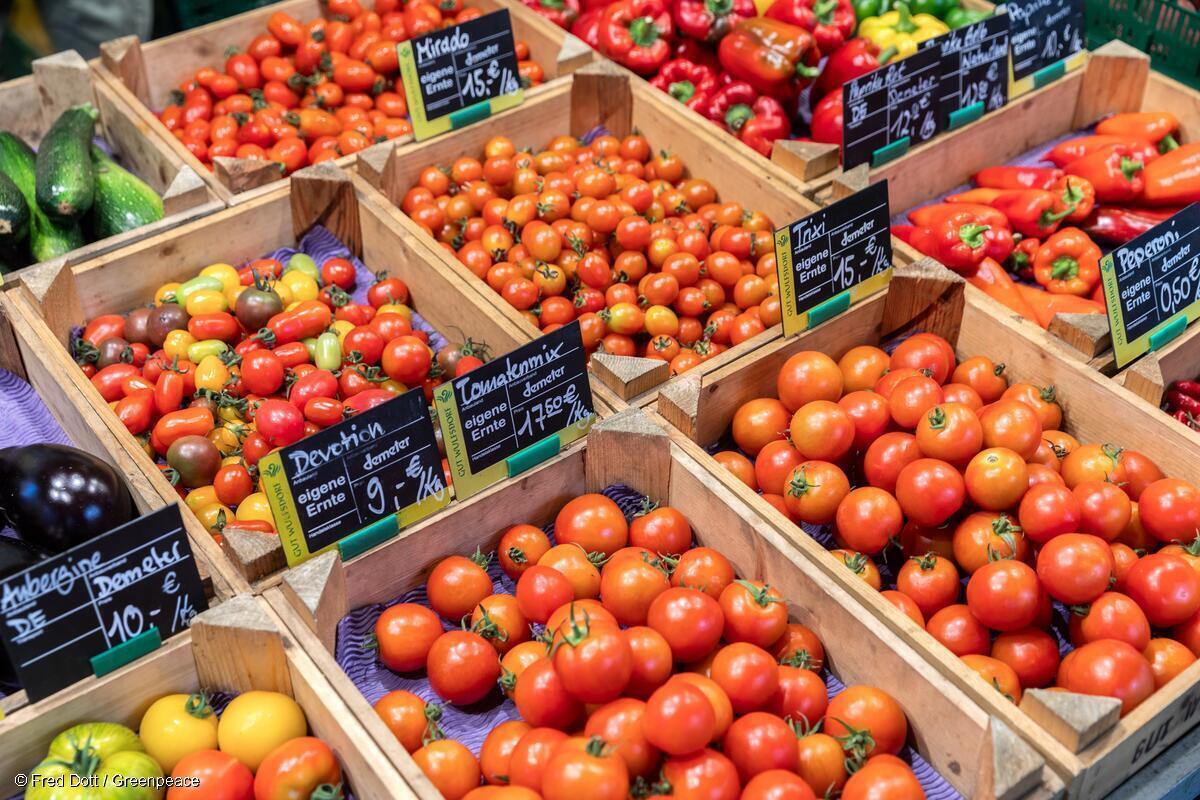Brussels – A Greenpeace Germany study of Brazilian limes sold in the EU has found residues of several pesticides, some of them banned for use in Europe. An accredited and certified laboratory tested over 50 samples of limes bought in supermarkets and wholesale markets in Austria, Belgium, France, Germany, Italy, the Netherlands, Spain, and Sweden and found pesticide residues in all but one sample. #

The pesticides – among them the herbicide glyphosate, and the insecticides imidacloprid and cypermethrin – are sold by European companies in Brazil, one of the top pesticide users in the world. The study was conducted in light of the planned trade agreement between the EU and the Mercosur countries Brazil, Argentina, Paraguay and Uruguay. The proposed EU-Mercosur deal would eliminate tariffs on EU pesticide exports to the Mercosur countries and reduce controls on imported foods, meaning both pesticide use and adverse effects are expected to increase sharply.
Lis Cunha, Greenpeace Germany trade campaigner, said: “EU chemical giants export to toxic substances to Brazil, some of which aren’t even approved for use within EU borders, and the EU re-imports them as residues on food. The EU-Mercosur deal would put this toxic cycle into overdrive, and cement a neo-colonial, extractivist relationship that favours the EU. The deal perpetuates an economic model that is destroying our planet, so we’re calling on policymakers to bury the EU-Mercosur deal once and for all.”
Marina Lacorte, Greenpeace Brazil food and agriculture campaigner, said: “Pesticides are already poisoning thousands of people each year in Brazil and killing millions of bees, to name just two of the many consequences. So who stands to benefit from the EU-Mercosur deal? Harmful industries, such as the pesticide industry – but certainly not the people in Europe or South America.”
Currently, more than 3,000 commercial pesticide products are registered for use in Brazil. As of February 2023, 63 percent of the active ingredients authorised in Brazil have no corresponding authorisation in the EU. One-third of the active ingredients found by the study are also found in pesticides sold in Brazil by European companies BASF and Bayer. These companies stand to benefit from the trade deal, which would eliminate tariffs on more than 90 percent of the EU’s chemical exports, including pesticides.
European trade ministers will meet in Brussels on 25 May to discuss the EU-Mercosur deal.
Key findings of the study
- Of the 52 samples, 51 contained pesticide residues
- 27 active ingredients were found: one biocide (disinfectant chlorate), three herbicides, ten fungicides, and 13 insecticides
- Six of the active ingredients found are either not approved or banned in the EU
- One-third of the samples contained the potentially carcinogenic herbicide glyphosate
- More than 90 percent of the samples containing residues showed a toxic cocktail of up to seven different pesticides
- More than half of the pesticides found are considered highly hazardous because they pose a high risk to human health, animals or the environment
Contacts:
Lis Cunha, Greenpeace Germany trade campaigner: [email protected]
Greenpeace EU press desk: +32 (0)2 274 1911, [email protected]
For breaking news and comment on EU affairs: www.twitter.com/GreenpeaceEU
Greenpeace is an independent global campaigning network that acts to change attitudes and behaviour, to protect and conserve the environment and to promote peace. We do not accept donations from governments, the EU, businesses or political parties. Greenpeace has over three million supporters, and 26 independent national and regional organisations with offices in more than 55 countries.
EU Transparency Register: 9832909575-41



